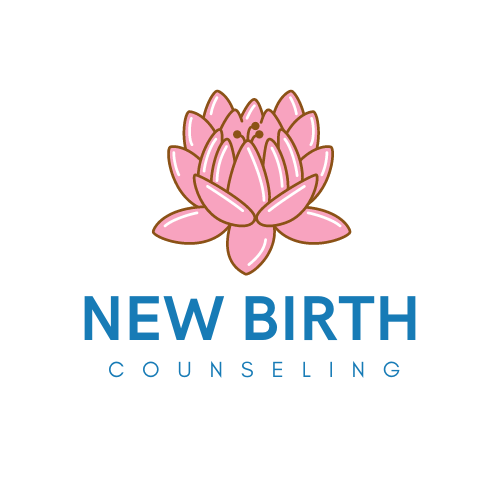Navigating Love After Pain: Steps to Ensure a Safe, Healthy, and Fulfilling Dating Experience
Dating can be a thrilling adventure, filled with anticipation and the promise of new connections. However, for those who have experienced trauma, the path to love can be fraught with challenges. In this blog, we'll explore the steps to ensure a safe, healthy, and fulfilling dating experience after trauma.
Understanding Trauma
Trauma comes in many forms, leaving lasting imprints on our mental and emotional well-being. It's crucial to recognize how past experiences can affect our approach to relationships. Whether the trauma is rooted in past relationships, family dynamics, or other life events, understanding its impact is the first step towards healing.
Self-Reflection
Before embarking on the journey of dating after trauma, it's essential to engage in self-reflection. Assess the ways in which past experiences have shaped your perceptions and behaviors. This introspection allows you to set realistic expectations and better communicate your needs and boundaries.
Building a Support System
No one should navigate the complexities of dating after trauma alone. Seeking support from friends, family, or professional counselors can provide invaluable assistance. Joining support groups or online communities with individuals who share similar experiences can create a sense of belonging and understanding.
Communication Skills
Effective communication is the cornerstone of any healthy relationship, especially when dating after trauma. Open and honest conversations about your past can foster understanding and create a foundation of trust. Additionally, active listening plays a crucial role in building meaningful connections with others.
Choosing the Right Partner
Selecting a partner who is understanding and supportive is pivotal in the dating journey after trauma. Be vigilant for red flags and prioritize relationships with individuals who respect your boundaries and provide a nurturing environment for growth.
Taking Things Slow
The rush of a new relationship can be exhilarating, but it's essential to pace yourself when dating after trauma. Gradual progression in emotional and physical intimacy allows for a more comfortable and sustainable connection. Recognizing when to step back and prioritize self-care is equally important.
Establishing Boundaries
Clearly defining and communicating personal boundaries is a non-negotiable aspect of dating after trauma. Mutual respect limits are crucial for a healthy relationship. Regularly reassessing and adjusting boundaries ensures they remain relevant as the relationship develops.
Self-Care Practices
In the whirlwind of dating, it's easy to neglect self-care. Yet, it's essential to prioritize activities that promote mental and emotional well-being. Whether it's engaging in hobbies, spending time with loved ones, or practicing mindfulness, self-care is a vital component of a fulfilling dating experience.
Seeking Professional Guidance
For many individuals, seeking professional guidance is an integral part of the healing process. Therapy or counseling can offer ongoing support and provide tools to navigate challenges related to trauma. New Birth Family Counseling is one such resource, offering specialized assistance for those seeking to overcome past traumas and build healthy relationships.
New Birth Family Counseling:
Navigating the complexities of dating after trauma may require the expertise of professionals. New Birth Family Counseling specializes in supporting individuals on their journey toward healing and fulfilling relationships. Our experienced counselors offer a safe space to explore the impact of past traumas and develop strategies for a healthier future.
New Birth Family Counseling's Approach:
Our counselors utilize evidence-based therapeutic techniques to address trauma-related challenges. With a focus on understanding and empathy, they work collaboratively with clients to navigate the intricacies of dating after trauma. Whether you're struggling with trust issues, communication barriers, or self-esteem concerns, the counselors at New Birth Family Counseling are here to help.
How We Can Help:
Individual Counseling: Tailored sessions to address personal experiences and challenges.
Couples Counseling: Guidance for navigating relationships and building stronger connections.
Group Therapy: A supportive community where individuals can share experiences and learn from one another.
If you're ready to take the next step towards a healthier dating experience, visit New Birth Family Counseling to book a free consultation.
Celebrating Progress
As you embark on the journey of dating after trauma, it's crucial to celebrate your progress. Acknowledge the growth you've achieved, both individually and in your relationships. Reflect on positive dating experiences, no matter how small, and embrace the ongoing journey towards healing and fulfillment.
Conclusion
Dating after trauma is a courageous endeavor that requires self-reflection, effective communication, and a supportive network. By understanding the impact of past experiences, setting boundaries, and prioritizing self-care, individuals can build the foundation for healthy and fulfilling relationships. Seeking professional guidance, such as the services offered by New Birth Family Counseling, can be a transformative step towards healing. To begin your journey, book a free consultation at www.newbirthfamilycounseling.com/get-started and take the first step towards a brighter and more fulfilling future.
